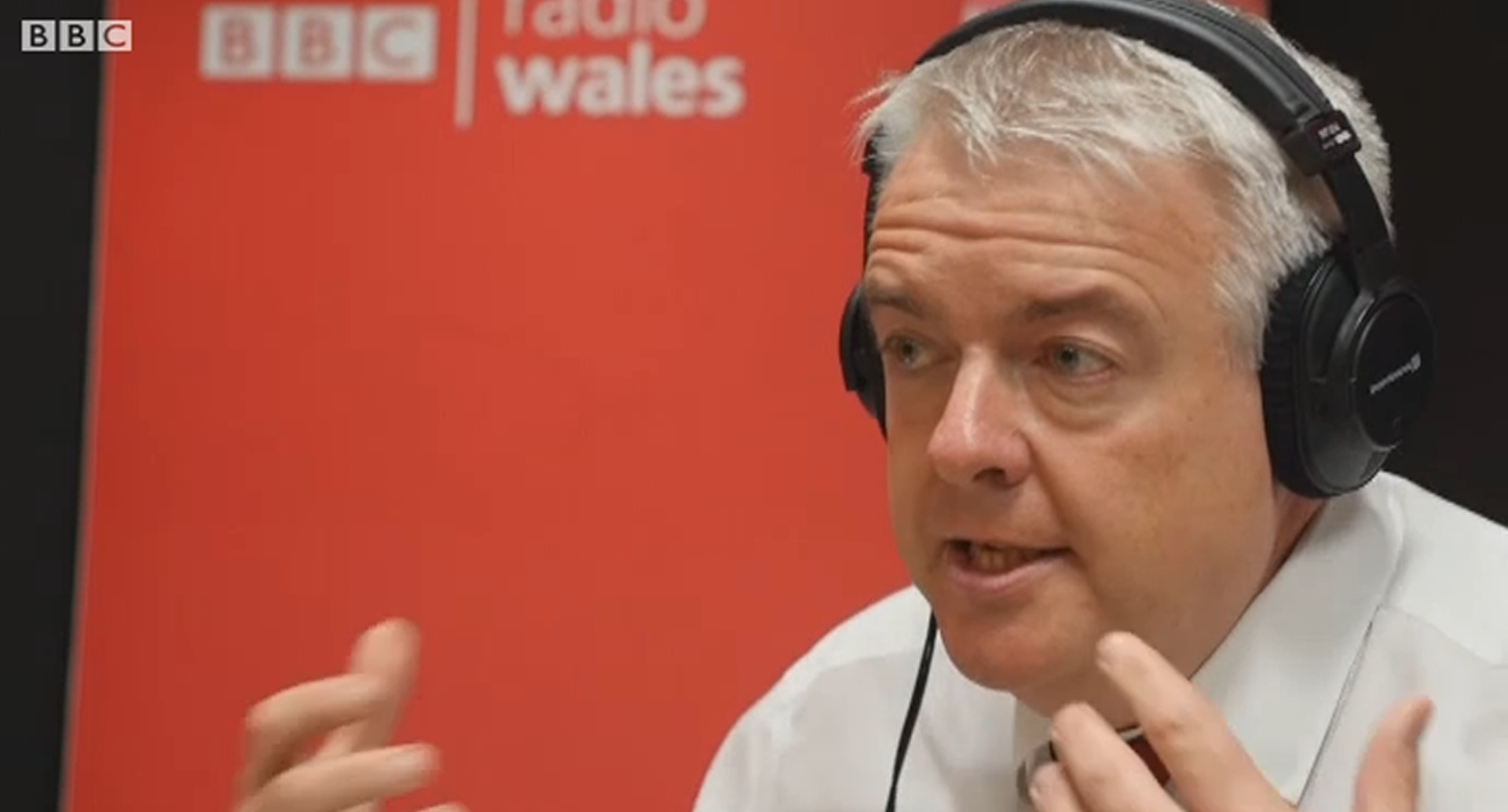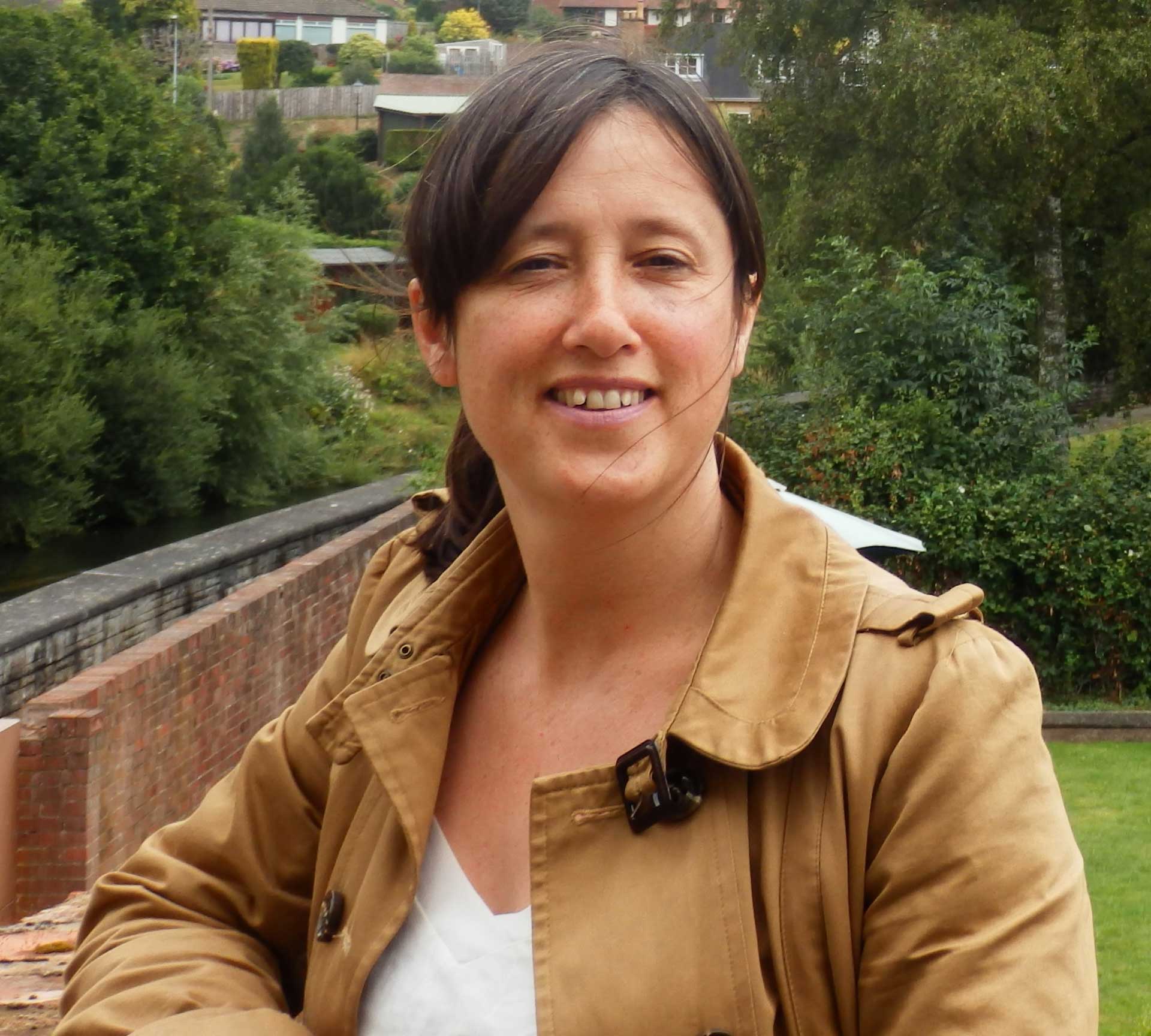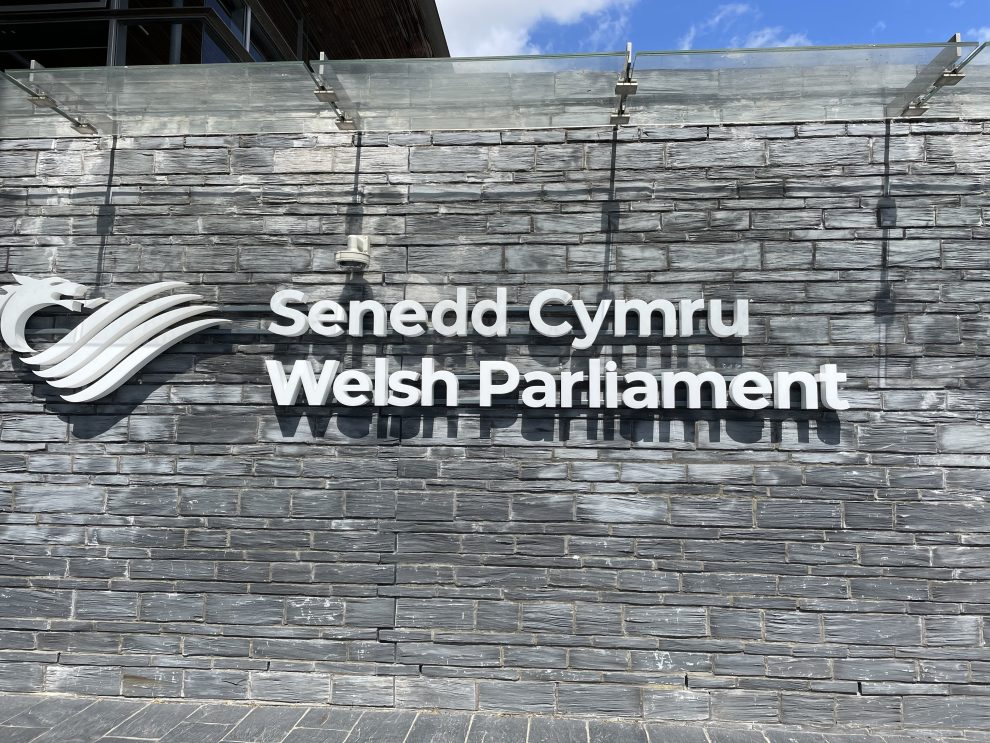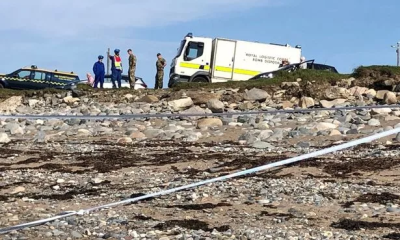Politics
20 years since Wales said ‘yes’

TWO decades since Wales said ‘yes’ in the referendum to create the National Assembly, a group of young people for whom the institution has always been a feature of their lives, visited the Senedd on Monday (Sept 18) and met the Llywydd, Elin Jones AM.
Representatives of the ‘devolution generation’ took part in a Question and Answer session with the presiding officer and were given a tour of the National Assembly building in Cardiff Bay.
SUPPORT FOR DEVOLUTION GROWS
In 1997 Wales went to the polls and voted to establish the National Assembly for Wales.
Since then the Assembly gained primary law-making powers through the Government of Wales Act 2006 before Wales voted again in 2011 to unlock further powers from Westminster.
Wales Acts in 2014 and 2017 have seen the Assembly’s responsibilities widen further to include tax-raising powers for the first time in almost 800 years.
Landmark laws passed by the Assembly include adopting a system of presumed consent for organ donation and minimum staffing levels on hospital wards, while a petition calling for a ban on single-use carrier bags led to a 5p charge which has greatly reduced their use and been adopted across the UK.
To mark the occasion around 70 young people took part in a question and answer session with the Llywydd of the National Assembly, Elin Jones AM, where topics including voting age, a youth parliament and the future of the Assembly were discussed.
Elin Jones AM said: “Support for devolution and the National Assembly has grown significantly in Wales. In 1997 the vote in favour was very close, but a BBC Wales St David’s Day poll in 2017 had 73% of people either saying the Assembly’s powers should be increased or were sufficient.
“Our priority for the future is to ensure that we have a parliament that is well-equipped to represent the interests of Wales and its people, make laws for Wales and hold the Welsh Government to account; a parliament that is an equal of its counterparts across the UK.”
How Assembly legislation has changed Wales and the UK:
- Wales was the first UK nation to restrict smoking in enclosed public places
- Wales was the first UK nation to have a national conversation about changing organ donation law and to pass legislation bringing in the soft-opt-out system. Now Scotland and England are looking to follow
- The Nurse Staffing Act, introduced by Kirsty Williams AM was the first legislation of its kind in the UK and Europe, requiring the NHS to take steps to calculate and maintain nurse staffing levels in adult acute medical and surgical inpatient wards
- A member-proposed measure by Ann Jones AM, now Deputy Presiding Officer, required all new homes built in Wales to be fitted with a sprinkler system
- The 5p charge on single use carrier bags was originally proposed via the Petitions Committee process and went on to become legislation through the Assembly. Wales went on to become the first country in the UK to introduce a charge on single use carrier bags in October 2011. Others have followed
- At a time when public confidence in politicians was at its lowest, the Assembly took the radical step in 2008 to review its arrangements for determining Members’ pay and allowances. The independent Remuneration Board was established in 2010 to determine the remuneration and allowances for Members of the National Assembly for Wales
- In 2013 the Assembly passed a law that cemented both English and Welsh as the Assembly’s official languages placing a statutory duty on itself to provide services to Members and the public in the official language of their choice
20 YEARS AND 20 QUOTES
“Devolution is about harnessing the power of community – the diverse community that is the United Kingdom, and the national communities that through devolution can take their futures in their own hands.”
A quote from Tony Blair who in 1997 led Labour back to power for the first time since 1979 in a landslide victory. The Labour manifesto included a commitment to holding a referendum on the creation of a Welsh Assembly.
“There are some variations across social groups in Wales. Women clearly support a Welsh Assembly – by 37 to 29 – while men oppose one by 43 to 38.
“There is strong majority support for devolution among those aged 18 to 34, while a majority of those voters aged over 65 oppose an assembly.”
An extract from the results of a Guardian/ICM poll taken a week before the referendum vote.
“Good morning, and it is a very good morning in Wales.”
This is how Ron Davies, Secretary of State for Wales in 1997 and leader of the Yes campaign started his speech when the result was announced.
“When you win a national campaign by less than seven thousand votes it makes every last leaflet, every last foot-step, every last door knocked, worthwhile.”
Leighton Andrews, former Assembly Member and Welsh Government Minister, reflects on the Yes Campaign in a recent blog for the IWA. 50.3% of those who voted in the referendum supported devolution – a narrow majority in favour of 6,721 votes.
Following the referendum, the UK Parliament passed the Government of Wales Act 1998. The Act established the National Assembly as a corporate body – with the executive (the Government) and the legislature (the Assembly) operating as one. The first Assembly elections were then held on 6 May, 1999.
“The people of Anglesey in the slate quarries of Caernarfonshire used to be known as Pobol y Medra, because their answer to the question, ‘Can you do this?’ was ‘Medra’—‘I can. That must be our message throughout Wales. Let the whole of Wales become Pobol y Medra.”
Alun Michael, having just become the First Secretary of Wales on 12 May 1999.
“It is now the only legislature in the world that is perfectly balanced between men and women. We should note that. It is a message that should ring around the world.”
Rhodri Morgan, then First Secretary, following the 2003 Assembly elections when a world record was set by the Assembly through becoming the first legislative body with equal numbers of men and women.
“We popped in to admire the architecture and have a look around but were pleased to find that we could enter the public gallery and watch a live debate taking place. It was really interesting and enhanced our understanding of the place and the people working there. Definitely worth a visit.”
A review of the Senedd on TripAdvisor. The Senedd became the home of the National Assembly for Wales in 2006 and since then has welcomed more than one million visitors.
“We are moving into a new era, with new powers, and we have a wonderful opportunity to attempt to take the constitution of Wales forward in a new stage of devolution.”
Dafydd Elis-Thomas AM, then Presiding Officer, speaking in 2007 following the legal separation of the National Assembly for Wales and the Welsh Government as the Government of Wales Act (2006) came into force.
The 2006 Act also gave a way for the National Assembly to gain powers to make laws without the need for the UK Parliament’s approval, through a yes vote in a referendum.
“The rest of the world can now sit up and take notice of the fact that our small nation, here on the western edge of the continent of Europe, has demonstrated pride in who we are, and what we all stand for.”
Ieuan Wyn Jones, then Deputy First Minister and leader of Plaid Cymru, following the 2011 referendum where the Welsh electorate voted in favour of further powers to the National Assembly.
“Just fifteen years ago, it would have been unthinkable for politicians, elected by Welsh voters, to draft such legislation and put it on the statute books within such a short space of time.”
Dame Rosemary Butler, then Presiding Officer, comments on the first Assembly act to become law following the new powers granted by the 2011 referendum. The law, introduced by the National Assembly’s Commission, officially recognised both the Welsh and English languages as the official languages of Assembly proceedings.
“Good laws need to be formed through contributions and opinions from the people of Wales if they are to be truly democratic, transparent and accountable.”
David Melding AM, then Deputy Presiding Officer and Chair of the Constitutional and Legislative Affairs Committee. Just like Select Committees in Westminster, Assembly Committees are an integral aspect of how the Assembly holds the Welsh Government to account.
“An impressive feature of this Chamber has always been your commitment to accountability and transparency through electronic communication and the broadcasting of your proceedings. I know that the way you have addressed this commitment has stimulated interest in other and older parliaments.”
HM The Queen Elizabeth II commenting on the technology of the Siambr during one of the five official opening ceremonies. The Siambr is a fully electronic debating chamber. Every Member has an individual computer terminal, to enable them to research subjects for debate and to undertake work when not being called to speak. They also have access to headphones to amplify the sound in the Siambr or to use the simultaneous interpretation services provided.
“It’s modern democracy. There aren’t traditions, we’re not bound by anything that’s gone before but we’re trying to create the right processes that suit a modern democracy – getting the business done, making things happen.”
Dame Claire Clancy, who was the Clerk and Chief Executive of the Assembly from 2007 to 2017.
“It is vitally important that people with autism are able to participate fully in civic life and in their communities. Training and awareness can make a huge difference and I hope that the Assembly’s example inspires more public buildings and other organisations in Wales to work with us to become more autism friendly.”
Mark Lever, Chief Executive for the National Autistic Society, on the Assembly’s work to make its work and buildings autism-friendly.
“We’ve got to be world class and we mustn’t settle for anything else.”
Peter Hain, a Welsh Officer Minister at the time of the 1997 referendum, comments on the progress of Welsh devolution in 2014.
“You don’t come out the one time, you have to do it over and over again because there is still that assumption you are straight. Like somebody once said about devolution, coming out is more of a process than an event.”
Hannah Blythyn AM is the first openly lesbian woman to be elected to the National Assembly for Wales. The 2016 Assembly election saw also saw two gay men elected – Jeremy Miles AM and Adam Price AM.
As an employer, the Assembly has been included in the top five of Stonewall’s UK-wide LGBT Workplace Equality Index for the last three years.
“Now is the time for Wales to unite and to think clearly about our future. Even before yesterday’s vote I said that no one party had the monopoly on good ideas, and now more than ever, we must rely on the abilities of all.”
Carwyn Jones AM, the current First Minister, following the result of the Brexit referendum in June 2016.
“I think young people should be involved in democracy, it will make so much difference to our country. We need to be progressive in our society, we need to make changes for the better – we can’t stay stuck in the past.”
Tooba Naqvi talking about why she believes there should be a Youth Parliament for Wales that works alongside the National Assembly.
Youth engagement has been a priority for the Assembly with 30,000 young people reached through school visits, outreach programmes and other activities.
“We are entering a period when fundamental changes will be made to the constitutional arrangements of the UK, the place of the devolved nations within it, and the ability of the Assembly to deliver for the people of Wales. As that process unfolds, I am determined to demonstrate and secure the Assembly’s role as a strong, effective Parliament for Wales.”
The current Llywydd, Elin Jones AM reacting to the UK Government triggering Article 50.
Let ‘difficult’ become simple, and ‘challenging’ become fun; and let us each day repeat the maxim: that ‘two men will come together sooner than two mountains.
An extract from ‘Y tŷ hwn’ (‘This House’) a poem by Ifor Ap Glyn commissioned by the National Assembly for Wales for the Official Opening of the Fifth Assembly.
News
Too many children in Wales living in poverty – Lib Dems want action

THIS week in the Senedd, the Welsh Liberal Democrats renewed their demands for the implementation of child poverty targets.
According to a report from the Bevan foundation, 29% of children living in Wales are currently experiencing poverty (an estimated 190,000 children).
The same report highlighted that the largest percentage of children living in poverty are from working households or in couple households.
The Welsh Lib Dems are now renewing calls for the Welsh Government to create a set of targets for reducing child poverty, which the party argues will allow for more accountability.
The party has previously called for the implementation of targets, citing recommendations from the Calling Time on Child Poverty Report published in November last year.
Commenting, the Leader of the Welsh Liberal Democrats Jane Dodds MS said: “The latest statistics on childhood poverty in Wales paints a very distressing image of families across the country struggling to make ends meet.
Over the course of the last six years, the proportion of children in poverty has skyrocketed. Fuelled by worsening economic conditions and a complete lack of action from both governments in Westminster and Cardiff Bay.
We cannot act complacent about these figures nor accept the clear lack of progress in fighting child poverty, behind each statistic is a child that the state has failed.
It remains painfully clear that the Welsh Government is failing to make any meaningful progress in this fight, which is why they must follow through with the implementation of clear set targets that will allow for further accountability.
We as a party have continuously called for the creation of these targets and we will not be silenced. For the sake of future generations we urge the Welsh Government to listen.”
Education
Conservative calls for academies and free schools rejected by Senedd

THE SENEDD has rejected calls to introduce free schools and academies after a report found major challenges in Wales’ education system.
Tom Giffard led a Conservative debate on educational attainment, warning that Wales is consistently at the bottom of UK-wide league tables.
The party’s new shadow education secretary pointed to an Institute for Fiscal Studies (IFS) report on education in Wales which found low outcomes and high levels of inequality.
Mr Giffard told the Senedd the IFS report highlights the pitfalls of the Welsh Government putting all its eggs in the basket of a skills-based approach.
Criticising a failure to measure skills inequalities and pupil progress, he stressed that Wales’ lower performance is due to policy and approach rather than funding or the pandemic.
He said: “It seems the Welsh Government relies on Pisa results to tell the story but then, when those same results are all too disappointing, they are dismissed in equal measure.”
Mr Giffard, who previously worked in a primary school, said declines in Pisa results can be observed in almost every country that has adopted a skills-based approach.
Raising concerns about disappointing Pisa results, the South Wales West MS pointed out that Wales saw the lowest scores in the UK for every subject.
Heledd Fychan, Plaid Cymru’s shadow education secretary, warned that Wales’ schools are understaffed and facing difficult decisions due to budgets being at breaking point.
She criticised implementation of the Welsh Government’s additional learning needs (ALN) reforms, saying schools cannot realise the aims without the budget to bring them to life.
Ms Fychan said Plaid Cymru agreed with much of the Tory motion but her party would not support calls for free schools and academies.
Sam Rowlands described the IFS report as damning, warning that the Welsh Government’s education reforms have been disastrous and have widened inequality.
The Tory MS claimed the reforms are systematically holding back disadvantaged children, saying: “The most remarkable fact is that the performance of disadvantaged children in England is either above or similar to the average for all children in Wales.”
Mr Rowlands added: “The poorest in England’s schools are doing the same or better than the Welsh average, thanks to ambition, the academies and free schools.”
Samuel Kurtz, a fellow Tory, said free schools and academies have driven up standards in England as he argued a Wales roll-out provides an opportunity to improve outcomes.
James Evans, the Conservative MS for Brecon and Radnorshire, highlighted the party’s pledge to get 5,000 more teachers into Wales’ classrooms.
Buffy Williams, the newly elected chair of the Senedd’s education committee, said Wales is undergoing a profound transformation propelled by ALN and curriculum reforms.
The Labour MS for Rhondda stressed the importance of listening to teachers and allowing ample time for the reforms to take root in classrooms across Wales.
Altaf Hussain recounted a conversation he had this week with a headteacher at one of the largest schools in his South Wales West region.
The Conservative said: “The major improvements they have been delivering to attainment and addressing behavioural issues are all at risk because of cuts to funding.
“Vital work undertaken to improve the lives of young people with additional needs could be halted because they cannot afford to continue employing the support workers.”
Lynne Neagle recognised the scale and seriousness of work still ahead to improve Wales’ education system, stressing: “I am not, in any way, complacent about that task.”
Wales’ newly appointed education secretary, who takes over from Jeremy Miles, said sustained improvement in attainment will be among her top priorities.
She told the chamber: “My early focus has been to listen closely to schools and where it is clear that schools seek more scaffolding.”
Ms Neagle said the Welsh Government will work with trade unions and employers to reduce workload and eliminate unnecessary red tape.
The Conservative motion was voted down, 14-35, following the debate on April 24. The motion as amended by the Welsh Government was agreed, 26-23.
Climate
£1m turbine application to be decided by all councillors at County Hall

A TWICE-BACKED £1m scheme for a “20-storey-high” wind turbine at a Pembrokeshire mansion will have to be decided by all councillors.
Mr and Mrs Glen Peters of Western Solar Ltd are seeking permission for a single turbine on land near the Grade II-listed Rhosygilwen Mansion, which includes an arts and functions building known as Neuaddydderwen.
Members of the April meeting of Pembrokeshire County Council’s planning committee were recommended to refuse the scheme, despite backing it at their March meeting.
This backing meant the application returned to the April meeting for ratification after a ‘cooling off’ period; the application having been deferred at the January meeting pending a site visit.
It was initially recommended for refusal in January for several reasons, including potential harm to the setting of the Grade-II-listed house and grounds, and fears of threats to the safe operation of West Wales Airport at Aberporth in neighbouring Ceredigion, some 9.5 kilometres away.
The last concern was later withdrawn.
In papers ahead of the April meeting, officers, again recommending refusal, have said the scheme “would not protect or enhance the setting [of Rhosygilwen] but rather would result in significant harm to this interest of acknowledged importance”.
They have also warned any backing of the scheme against policy recommendations could set a precedent for similar developments.
-

 News7 days ago
News7 days agoPolice issue update on the search for Luke, missing from Pembroke Dock
-

 News2 days ago
News2 days agoPolice and air ambulances at ‘serious incident’ at West Wales school
-

 News6 days ago
News6 days ago20mph U-turn: Some roads will return to 30mph following public outcry
-

 Community6 days ago
Community6 days agoMiracle pup finds her forever home after heart-wrenching journey
-

 Crime2 days ago
Crime2 days agoPembrokeshire pensioner accused of 17 sexual offences against children
-

 Crime1 day ago
Crime1 day agoAll three school stabbing victims discharged from hospital, police confirm
-

 Community3 days ago
Community3 days agoCounty Hall to offer space for community banking
-

 Crime4 days ago
Crime4 days agoBrian Davis: Wanted on suspicion of commercial burglary
























